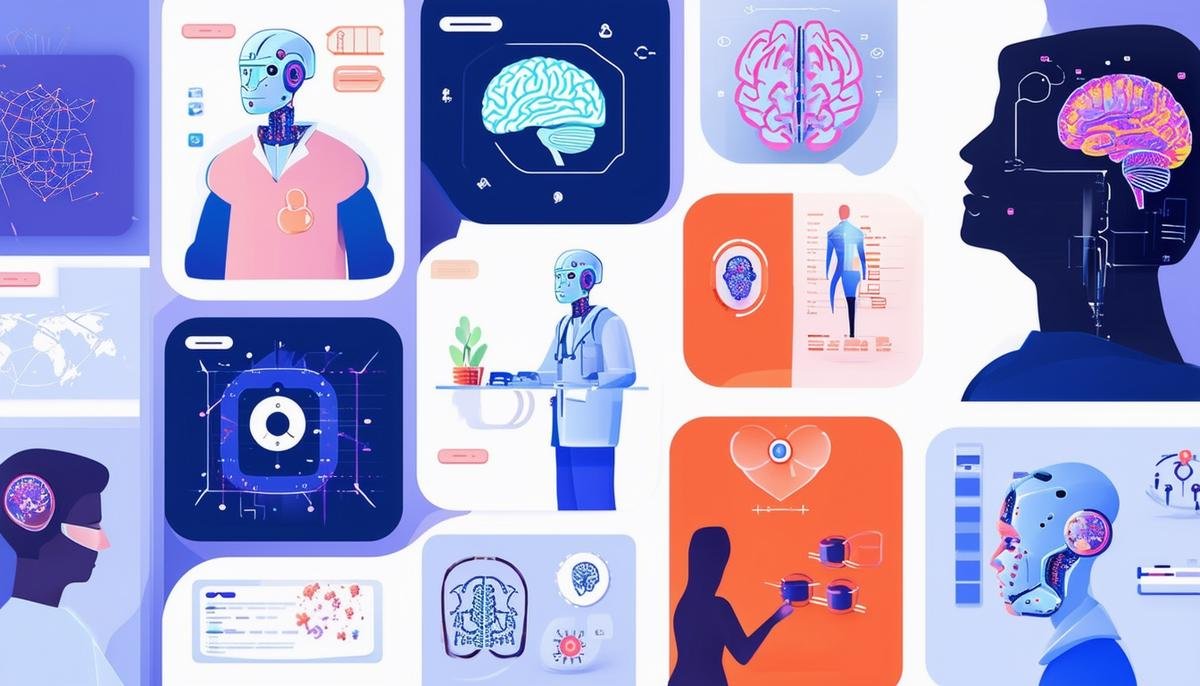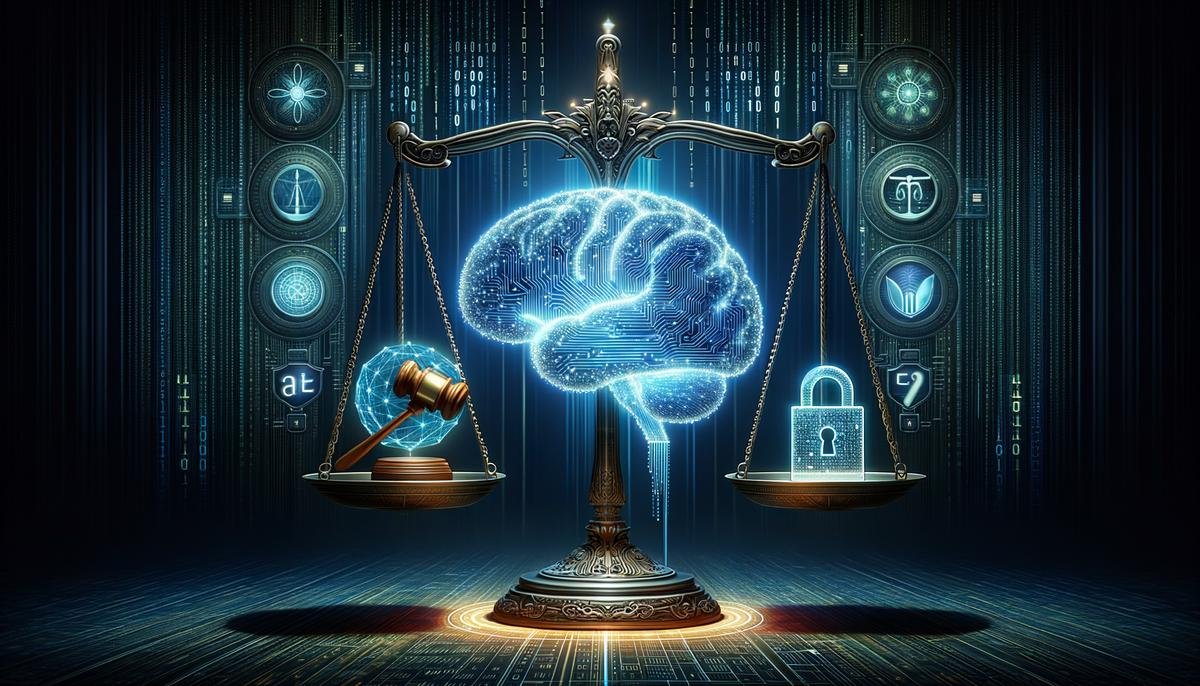Current State of Mental Health Care
The shortage of mental health professionals is a significant issue. In the United States, there are roughly 350 individuals per mental health provider, making it difficult for many to access care. About 45 percent of mental health professionals report experiencing burnout, further reducing availability.
Accessibility is another challenge. Rural areas often have limited mental health services, forcing individuals to travel great distances or forgo care. Cost and social stigma are additional barriers.
AI-based solutions are emerging to address these needs. AI chatbots offer 24/7 support with surprising levels of empathy. Studies indicate users rate their trustworthiness similarly to human therapists. AI algorithms have shown promise in diagnosing conditions like schizophrenia, with some outperforming human doctors in accuracy1.
Challenges and Potential of AI in Mental Health Care:
- Privacy issues
- Risk of forming unhealthy attachments to digital helpers
- Potential to bridge gaps in care
- Offer real-time feedback
- Aid in discovering new therapeutic techniques
The goal is for AI to assist professionals, not replace them. This could allow mental health providers to focus on what they do best while technology handles routine tasks, potentially improving both access and quality of care.

Role of AI in Mental Health
AI is actively transforming mental health care through various applications:
- Chatbots: AI-powered chatbots like Woebot offer immediate support for anxiety and depression using cognitive-behavioral techniques.
- Diagnostics: AI algorithms analyze brain scans to identify mental health conditions with high accuracy, reducing misdiagnoses.
- Therapeutic interventions: Machine learning models assist therapists by providing real-time suggestions during sessions.
- Ongoing management: AI-driven tools offer personalized support between therapy sessions, helping patients stay engaged.
- Research: AI can analyze large datasets of psychotherapy transcripts to refine existing techniques and develop new methodologies.
While AI shows promise in enhancing mental health care, challenges remain. Data privacy concerns and the need for robust security measures are paramount. However, integrating AI into mental health care could help address provider burnout by handling routine tasks, allowing professionals to focus more on direct patient care.
“Careful and ethical application of AI in mental health care has the potential to improve accessibility, accuracy, and ongoing support for those in need.”

Emotional Support Animals vs. Emotional Support AI
Emotional Support Animals (ESAs) and Emotional Support AI (ESAI) offer distinct advantages in mental health support.
| ESAs Provide | ESAIs Offer |
|---|---|
| Unconditional love and physical touch | 24/7 availability and consistency |
| Deep emotional connections | Immediate responses in crisis moments |
| Comfort during stressful times | Structured interventions using cognitive-behavioral techniques |
| Encouragement for physical activity | Scalability to assist many users simultaneously |
Practical considerations:
- ESAs require ongoing care, feeding, and healthcare
- ESAIs need minimal maintenance but require software updates and ethical management
Emotional aspects:
- ESAs provide comfort through their presence and encourage mindfulness
- ESAIs offer non-judgmental advice and may facilitate more honest emotional expression
Both ESAs and ESAIs have roles in mental health care, catering to different needs and circumstances. Their integration into mental health systems requires careful consideration of ethical, practical, and emotional implications2.

Ethical and Privacy Concerns
The integration of AI into mental health care raises important ethical and privacy issues. Data protection is a key concern, as AI systems require collecting substantial personal information. Keeping this data confidential and secure is crucial.
Data breaches pose a significant risk. If sensitive information were compromised, it could violate privacy and erode trust in AI-based mental health services. Robust security measures, including encryption and access controls, must be integral to any AI system handling such data.
Clear communication about data usage and storage is essential. Users should be informed about:
- What data is collected
- How it’s used
- Who can access it
This helps reduce misuse risks and builds trust between users and AI systems.
Another issue involves AI potentially providing harmful advice. While AI chatbots and diagnostic tools can assist, they’re not perfect. Cases where AI has given detrimental advice highlight this danger. AI lacks the nuanced understanding of a human therapist and can misinterpret context.
This emphasizes the need for thorough testing and ongoing oversight of AI systems. Incorporating feedback loops where AI learns from mistakes is important, but human oversight must remain a significant part of AI use in mental health. Ideally, AI should support and enhance human therapists, not replace them entirely.
There’s also a risk of users becoming overly dependent on AI systems. While AI can offer immediate support, overreliance may hinder an individual’s ability to seek or benefit from human interaction. This dependency might create barriers to developing necessary social skills.
“AI should be viewed as a supplementary tool rather than a primary support source.”
Addressing this involves setting clear boundaries about AI’s role in mental health care. Education on appropriate AI use can help individuals use these resources responsibly.
Regulatory frameworks and ethical guidelines need establishment to ensure responsible AI use in mental health care. This includes:
- Setting data protection standards
- Mandating transparency
- Ensuring accountability when AI systems fail or cause harm
While AI offers potential benefits for mental health care, it’s important to approach these innovations carefully, ensuring ethical standards and privacy protections safeguard users’ well-being.

Future of AI in Mental Health
The future of AI in mental health could include more advanced autonomous AI therapists integrated into our care system. These digital therapists could offer real-time interventions and support to anyone, anywhere.
AI therapists could analyze large data sets quickly, identifying patterns and predicting potential mental health issues before they occur. This preemptive action could help prevent problems from escalating.
These AI solutions could expand access to mental health care where human therapists are scarce. Rural communities and areas with limited mental health infrastructure could benefit from these AI-driven options.
Advancements in AI Emotional Intelligence
Future AI might better understand and respond to human emotions. This could lead to more effective interventions, helping individuals feel understood, even by a machine.
Integration of multimodal AI systems, which combine various data forms like voice, text, and biometric data, could create a more comprehensive understanding of an individual’s mental state. These systems could be used in:
- Virtual reality therapy sessions
- Supporting human therapists by offering real-time insights during sessions
However, these advancements come with challenges. Ensuring ethical use of such AI systems is important. Privacy concerns must be addressed, and the potential for AI mistakes must be minimized through testing and oversight. We must also consider the potential for dependency on AI and maintain a balanced approach.
The goal of integrating AI into mental health care remains to provide better support for those who need it, making care more accessible and effective1.

In summary, AI-driven solutions show potential to assist in addressing the current mental health care crisis. With careful integration, AI could enhance both access and quality of care, supporting mental health professionals in their work.



